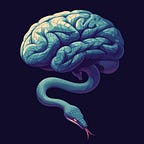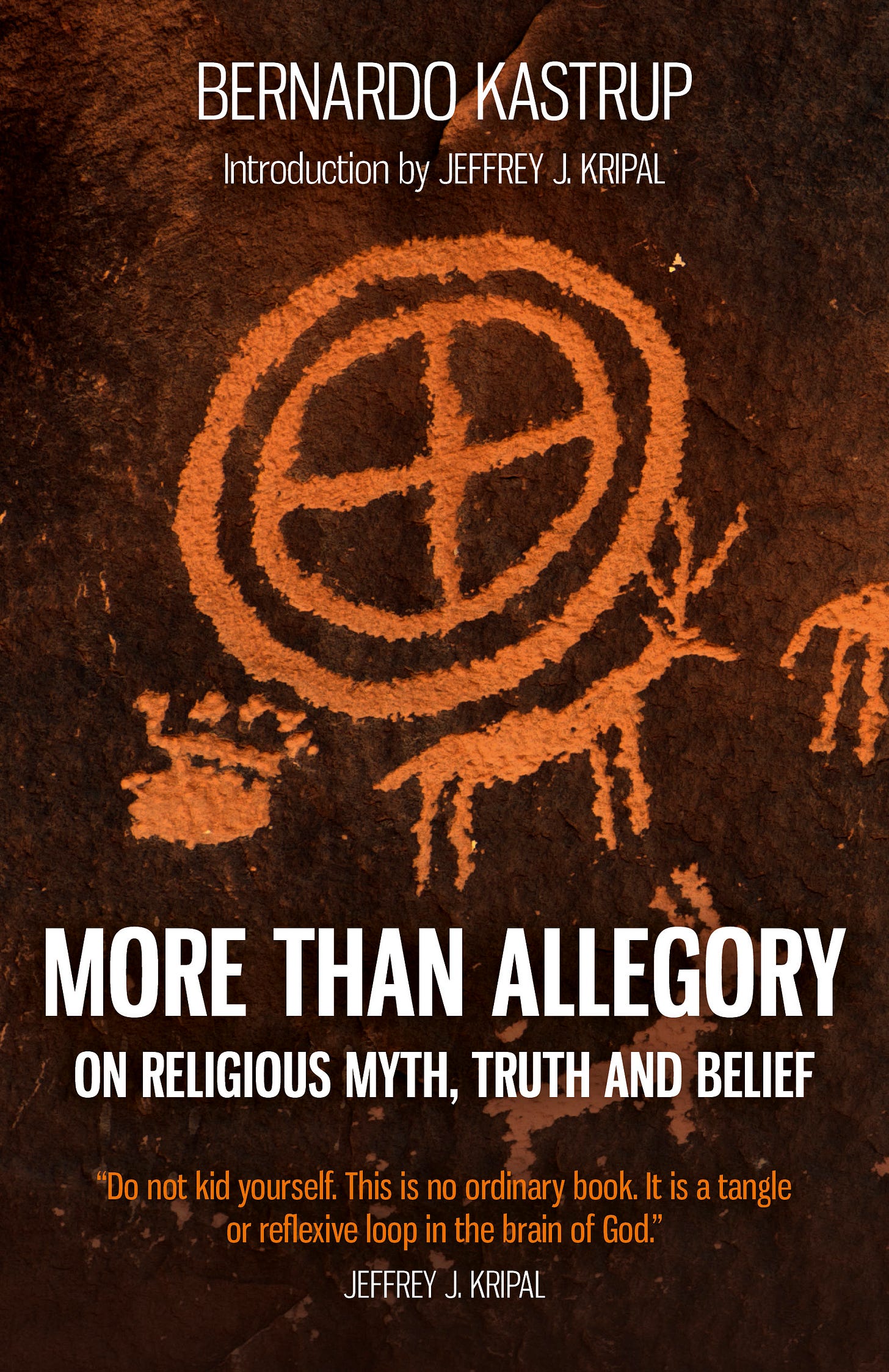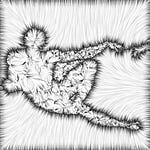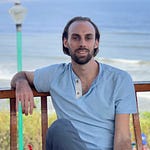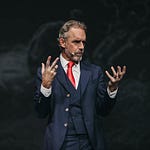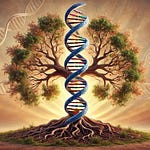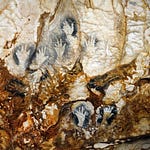Dan Ackerfeld and Roger’s Bacon join me to discuss More Than Allegory: On Religious Myth, Truth, and Belief by Bernardo Kastrup. We dive into Kastrup's challenging philosophy of analytical idealism, which posits that reality is fundamentally mental (“Mind at Large”). The conversation explores his interpretations of myth, the distinction between literal and transcendent truth, his critique of materialism, strong Jungian influences, and the broader implications of viewing the cosmos as consciousness.
Show Notes:
(00:00:23) Introduction & Guest Backgrounds
Andrew Cutler: data scientist blogging on the evolution of consciousness.
Dan Ackerfeld: Psychologist, writes at Mind of Mythos, interested in psychology, philosophy, myth, and narrativism.
Roger Bacon: Pseudonymous blogger (philosophy, art, spirituality), runs the Seeds of Science journal. Interested in speculative ideas.
(00:03:29) Overview of Bernardo Kastrup's Analytical Idealism (Summary by Roger)
Core Idea: A mind-first metaphysics. The cosmos is fundamentally mental ("Mind at Large"). (00:04:14)
Critique of Materialism: Kastrup views materialism as logically flawed ("baloney") and psychologically harmful, calling it a "deprived myth" leading to nihilism and despair. (00:05:05, 00:05:35)
Analytical Approach: Uses logic and reason to argue against materialism and for idealism. (00:04:46, 00:05:47)
Consciousness: We are instances ("altars") of a wider consciousness. (00:06:00, 00:35:02)
Space/Time/Matter: Considered appearances or constructs within the Mind at Large, not fundamental realities. (00:04:37, 00:08:04)
(00:06:14) Initial Reactions & Kastrup's Style
Agreement that Kastrup is articulate but can be aggressive in his critique of materialism (e.g., calling it "baloney"). (00:06:41)
Appreciation for Kastrup "biting the bullet" and presenting a coherent idealist worldview, unlike those who only tentatively suggest consciousness is fundamental. (00:07:16)
Discussion on whether Kastrup overstates the obviousness of his position. (00:07:11)
Preference for Kastrup's book over his podcast appearances expressed by guests. (00:06:29)
(00:09:15) Kastrup's Concept of Myth & Truth
Myth Defined: Any interpretive frame used to ascribe meaning to perceptions/sense experiences. Includes scientific hypotheses and religious stories. (00:09:56, 00:10:24)
Literal Truth: Pertains to the consensus reality shared by multiple conscious observers. Doesn't imply an external material world. (00:11:01)
Transcendent Truth: Truths about reality that cannot be fully captured in language; often expressed symbolically through myths, dreams, and the unconscious. Speaks to deeper, non-literal realities. (00:11:45, 00:15:04, 00:16:07)
(00:12:01) Jungian Influence & Symbolic Interpretation
Kastrup is heavily influenced by Carl Jung, viewing him as an analytic idealist and the most important thinker of the 20th century. (00:12:01, 00:12:17)
Myths contain transcendent truths expressed through archetypes and symbols generated by the collective unconscious.
Examples:
The Crucifixion: Symbolizes being on the cross (intersection) of space and time. (00:12:32)
Creation Myths (Aboriginal Dreamtime, Hermeticism, etc.): Point to a transcendent truth of a God dreaming reality and entering it. (00:13:16, 00:13:49)
Ouroboros: Symbolizes the paradoxical, self-referential nature of reality/mind. (00:15:18)
(00:16:20) Critique: Myth Diffusion vs. Collective Unconscious (Andrew's View)
Andrew questions the reliance on the collective unconscious to explain similar myths globally.
Diffusion Hypothesis: Proposes that myths (like Adam & Eve as memory of metacognition, or Ouroboros/snake symbolism) spread historically through human migration and cultural exchange (e.g., a "bullroarer mystery cult"). (00:17:13, 00:17:47)
Argues diffusion is a more parsimonious explanation than a mystical overmind, though remains agnostic about the latter. (00:17:58, 00:18:38)
Dan notes Jung also had evolutionary/genetic memory explanations for archetypes, not just mystical ones. (00:18:51, 00:19:03)
(00:22:14) The Problem of Regularity in an Idealist World
If reality is a dream, why does it follow consistent laws (physics)? (00:22:16)
Kastrup seems to accept the lawfulness of reality while rejecting materialism. (00:23:26)
Idealist Explanation: Laws of physics as "habits" of the Mind at Large. (00:23:47)
Jeffrey Kripal's Influence: Discussion of Kripal's work on paranormal/mystical phenomena, suggesting reality can be bent, often around moments of intense suffering or trauma, jolting the mind out of its habits. (00:24:01, 00:24:53)
Kastrup's personal experience with tinnitus potentially leading to a shift in perspective. (00:25:07)
(00:26:22) Re-evaluating Materialism (Roger's View)
Kastrup sees materialism as purely negative ("deprived myth").
Roger suggests materialism might also contain truth or serve a purpose:
Historically: A political tool during the Enlightenment to separate science from spirit, creating freedom from religious dogma ("too much meaning"). (00:26:40)
Metaphysically: Reality might be paradoxically both mental and physical; materialism captures one aspect. Zen Buddhism as an example of a "nihilistic" path that isn't necessarily negative. (00:27:49, 00:28:08)
Dan resonates, feeling the pull of idealism but acknowledging the persistent reality of the physical world in daily life. (00:28:25)
(00:29:12) Belief in Supernatural Events
Does Kastrup believe physics can actually be bent? He avoids specific examples to prevent "woo." (00:29:42)
Andrew finds premonition stories (e.g., mother sensing son's death) most convincing but remains agnostic. (00:29:58)
Roger leans towards believing such events happen, fitting better in an idealist framework where the "dream" can change. (00:31:50)
(00:32:53) Is Transcendent Truth Static or Evolving?
Drawing on Philip K. Dick: Could the fundamental nature of reality itself change? (00:32:55)
Kastrup's Layered Unconscious: Suggests deeper layers (containing physical laws) are inaccessible/unchangeable, while upper layers are more fluid. (00:33:36)
Raises the question of constraints on God's dreaming. (00:34:30)
(00:34:52) Humanity's Role: Altars & Perspective
Kastrup's idea: Humans are dissociated "altars" of the Mind at Large. This separation, though illusory, grants a unique perspective unavailable to the whole. (00:34:59)
Analogy to Dissociative Identity Disorder (DID): Creation through trauma (or perhaps boredom). (00:36:23, 00:38:29)
Connection to Gnostic/Mormon ideas: God in embryo, veil of forgetfulness, gaining experience through embodiment. (00:35:14)
Link to theories of metacognition evolving via traumatic rituals (Andrew citing Dr. Tom Froese). (00:37:06)
(00:39:29) The Significance of Introspection (Andrew's Point)
Andrew wishes Kastrup explored human self-awareness (mind reflecting on itself, the Ouroboros/strange loop) more, seeing it as a key phase change in idealism. (00:39:38)
Connects Eve ("mother of all living") to the birth of introspection. (00:40:01)
(00:40:34) The Necessity of Choosing a Myth (Dan's Question)
Kastrup argues we must commit to an interpretive myth (scientific materialism, Christianity, Buddhism, etc.) to navigate reality, even if it's the "default" myth of materialism or the "path of no myth" (Zen). (00:40:46, 00:41:29)
We can't ultimately know which is "true," requiring a leap of faith. (00:40:57)
Kastrup favors religious myths for providing access to transcendent truths. (00:41:00)
Discussion on whether myths are chosen aesthetically or if some are objectively "better." (00:42:20)
Critique that Kastrup might overlook the importance of cultural differences in myths, hand-waving them as aesthetics while focusing on universal transcendent cores. (00:42:37, 00:43:12)
(00:44:59) Morality in Analytical Idealism
Kastrup surprisingly views morality as a human convention, not grounded in fundamental reality. (00:45:06)
Andrew finds this inconsistent: If mind generates physics, why not moral laws? (00:45:38)
Dan suggests this might stem from Kastrup's own modern liberal leanings clashing with objective moral laws. (00:45:58)
Comparison to Jung: Explored the problem of evil (Answer to Job); ideas of universal vs. group-specific archetypes/moralities (e.g., Wotan essay). (00:46:37, 00:47:16)
Argument for Objective Morality: If reality reflects the Mind at Large, its morality should too. The Golden Rule's universality suggests a deeper grounding. (00:50:04, 00:51:16)
(00:51:50) Ideas as Living Entities (Roger's Concept)
Roger's essay "Ideas are Alive and You are Dead": Explores ideas as autonomous entities, potentially entering our minds from elsewhere (collective unconscious?). (00:52:24)
Ideas might "live" in consciousness as we live in spacetime. (00:53:15)
Raises questions about our moral relationship to ideas: Can we wrong an idea? Should we be stewards or collaborators? (00:54:32)
Dan finds the concept pushes towards idealism but struggles with the materialist default. (00:55:34)
(00:57:00) Personal Journeys & The Leap of Faith
All guests express interest and attraction to idealism but acknowledge the difficulty of fully embracing it against the backdrop of everyday material experience and scientific training. (00:57:06, 00:58:18)
Rational arguments can only go so far; a leap of faith seems necessary for any worldview, including materialism. (00:59:23, 00:59:42)
The difficulty of leaping out of the culturally dominant myth (currently materialism). (01:00:07)
(01:00:18) Does Consensus Reality Change?
Could reality itself metaphysically change based on collective belief? (e.g., Did materialism "kill" God or banish miracles?) (01:00:47)
If so, consensus reality could be diffused culturally. (01:02:30)
Counterpoint (Andrew): Lack of evidence for fundamentally different physics in the past; historical accounts suggest diffusion, not spontaneous divine intervention based on local belief. Persistence of miracle beliefs (e.g., Utah) without corresponding events. (01:01:43, 01:03:32)
(01:04:16) Final Thoughts & Conclusion
Dan: Still processing, finds Kastrup interesting and resonant but not fully convinced yet. (01:04:26)
Roger: Agrees with much of Kastrup's thinking, especially the psychological critique of materialism. Appreciates the aesthetic appeal of an open-ended, dramatic, mythic reality where suffering might serve a narrative purpose. (01:04:38, 01:05:40)
Andrew: Recommends listening to/reading Kastrup directly. Values his sincerity, careful reasoning, and bridging of technical/philosophical backgrounds. Still exploring, not yet an analytic idealist. (01:07:06)
General agreement on Kastrup's value as a careful, responsible thinker pushing important questions about consciousness and reality. (01:07:54)
(01:08:21) Book Recommendation: More Than Allegory: On Religious Myth, Truth, and Belief by Bernardo Kastrup.


